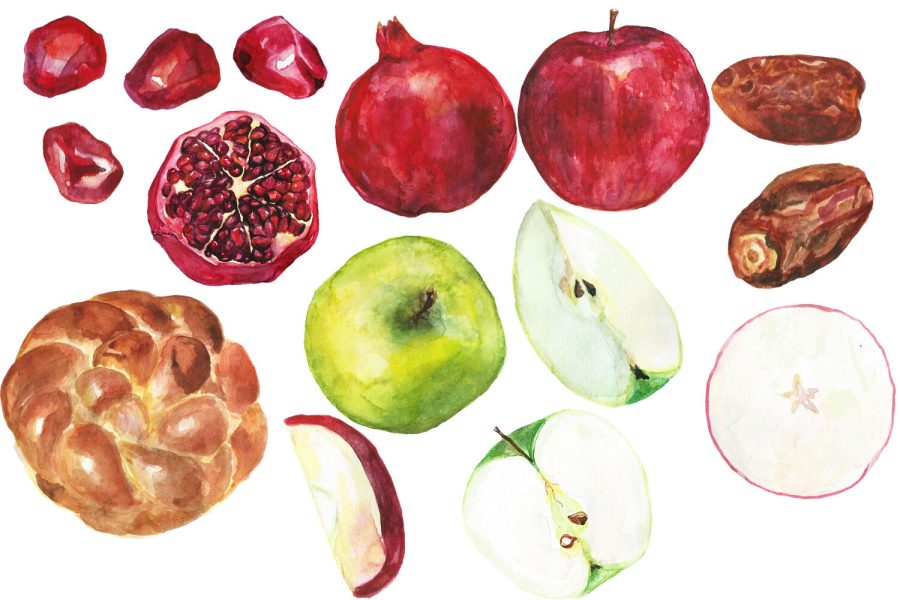Celebrating the Jewish New Year
What is Rosh Hashanah?
September 29, 2022
As many people may have heard, the Jewish holiday Rosh Hashanah was this very week, and yet not everyone might know much about it at all. In shorter terms, Rosh Hashanah is the Jewish New Year. It usually always falls in September or the beginning of October, and itself is the first day of a 10-day long period that finishes with Yom Kippur, or the Day of Atonement. In tradition, the time during the 10 days starting with Rosh Hashanah and ending with Yom Kippur is meant for God to determine whether a person will live or die in the coming year according to their morals. People celebrating are meant to take this period to pray, make good deeds, acknowledge any wrongs they may have previously made, and guarantee to make positive changes in their doings during the upcoming year. It is a chance for people to better themselves and spend time with their loved ones.
For a little background information, the phrase “Rosh Hashanah” appeared for the first time in the Mishna, a Jewish code of law assembled back in 200 A.D. Rosh Hashanah was never mentioned in the Torah, however the Torah did mention an important occasion that started at the beginning of the seventh month of the Jewish calendar– which is exactly around the time of the celebration of Rosh Hashanah. This was also the time of Tishrei, when God is said to have created the world, so some people saw Rosh Hashanah as the birthday of Earth. Others, such as Rabbis, associated Rosh Hashanah with Jewish meaning as the anniversary of God’s creation of the earth and mankind.
There are many ways to celebrate Rosh Hashanah, and one of the most common ways is attending synagogue. Synagogues are also frequently called temples, and they are Jewish houses of worship. People pray, sing, read, and give their thanks for being able to experience yet another celebration of Rosh Hashanah. Meals and certain foods are also a significant part of the holiday celebration. An example is challah, a type of traditional baked bread, and it is often baked in a round shape which symbolizes many things– the cyclical nature of life, the crown of God, and the never-ending cycle of time. People also often eat apples and honey. Ancient Jews believed that apples contained healing properties, and the honey generally symbolizes that the upcoming year will be sweet.
People celebrating Rosh Hashanah light candles to usher in each night of the 10-day long holiday period. During each candle lighting ceremony, a different prayer is recited as tradition. Another practice that people make during Rosh Hashanah is blowing a shofar horn. A shofar is a trumpet made from the horn of a kosher animal with the marrow removed, and during Rosh Hashanah, it’s tradition and a part of the Torah that people need to hear the shofar being blown, usually in synagogue. The Torah does not specify why people should do this on Rosh Hashanah, but people do make assumptions to the matter. For example, it is believed that we blow the shofar on Rosh Hashanah because it is like an alarm that calls on people to examine their deeds and correct their ways.
I am a Jewish person myself, and I can confidently say that I am incredibly lucky to be able to celebrate Rosh Hashanah. On Sunday, I visited my family, ate traditional Jewish food, recited prayers, and overall, happily celebrated what I would say is one of my favorite times of the year. Everything about the holiday allows a sense of peace and well-being into peoples’ minds, as well as unity between families and communities. I wish a very happy Rosh Hashanah to everyone reading!



